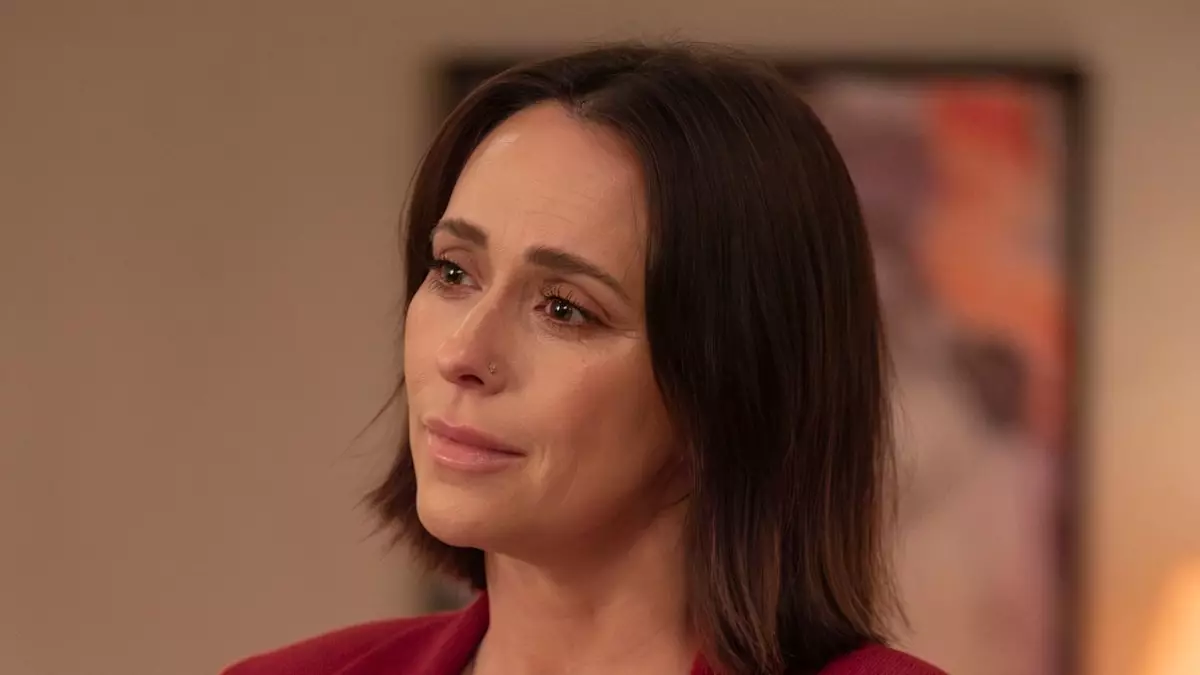Celebrated actress Jennifer Love Hewitt has recently opened up about the challenges she faces as a public figure navigating the cruel judgments that often accompany aging in the spotlight. At 45, the former child star has been in the public eye for decades, and her candid reflections on the pressure to maintain a youthful appearance have sparked important conversations about ageism and self-acceptance. As she prepares to reprise her iconic role in “I Know What You Did Last Summer,” Hewitt’s remarks remind us that the scrutiny women endure can often overshadow their talents and accomplishments.
Hewitt’s experiences highlight a critical issue within the entertainment industry: the biased perception that often defines a woman’s worth in terms of her age and appearance. After gaining fame at a young age with roles in programs like “Kids Incorporated” and her breakout performance in a horror classic, Hewitt has continued to grapple with the public’s fixation on her youth. As she noted in an interview with Fox News Digital, “For me… it was like me and my 20s… people seem to have a really hard time accepting that I don’t look that way anymore.”
This type of ageism particularly affects women, who frequently find themselves battling the unrealistic beauty standards perpetuated by society. The pain of being reduced to a specific “ideal” age can undermine the confidence and self-worth of accomplished individuals—not just in Hollywood, but across all professional arenas.
In a world where youth is celebrated, Hewitt offers a refreshing perspective that champions the beauty of aging. “Age is age,” she stated, noting that women often arrive at a newfound acceptance of themselves as they enter their 40s. This is a powerful reminder that aging should be embraced rather than feared—a realignment of how society perceives women’s evolving identities.
Hewitt’s reflections challenge the notion that women must remain perennially youthful to be deemed attractive or relevant. She emphasizes that, through life’s experiences—such as motherhood and personal growth—women develop unique characteristics that should be acknowledged and appreciated rather than dismissed.
Beyond her personal struggles, Hewitt is acutely aware of the impact these ageist comments can have on her children. As the mother of three—Autumn, Atticus, and Aidan—she expresses concern for how public opinion may influence their understanding of beauty and self-worth. “I have a daughter, I’m sensitive to it because I don’t want my kids to read those things,” she admitted. This perspective opens a dialogue regarding how the unrealistic ideals imposed upon women can inherently affect the next generation.
The responsibility of addressing these issues does not rest solely on the shoulders of celebrities. It extends to parents, educators, and communities who play a vital role in cultivating a healthier dialogue surrounding beauty, acceptance, and self-esteem. As role models, public figures like Hewitt can initiate this change by sharing their experiences and encouraging young people, especially young women, to embrace their individuality and resist fitting into predetermined molds.
Reflecting on her journey, Hewitt offers valuable advice to her younger self, urging her to embrace moments of joy rather than succumb to a relentless cycle of worries. Many individuals, men and women alike, often grapple with self-doubt, particularly when navigating high-pressure arenas like Hollywood. Her reminder that “it’s going to work out” serves as a reassuring message to those facing similar feelings in their lives—especially as they confront challenges, whether they be personal or professional.
Jennifer Love Hewitt’s candid discussion on aging, public perception, and self-acceptance invites us to reconsider our views on women in the limelight. By sharing her story, she not only challenges ageist notions permeating society but also encourages all individuals—women especially—to recognize their worth irrespective of age. As we move forward, such open dialogues are critical in fostering a culture that celebrates every life stage and acknowledges the beauty in both youth and maturity.

